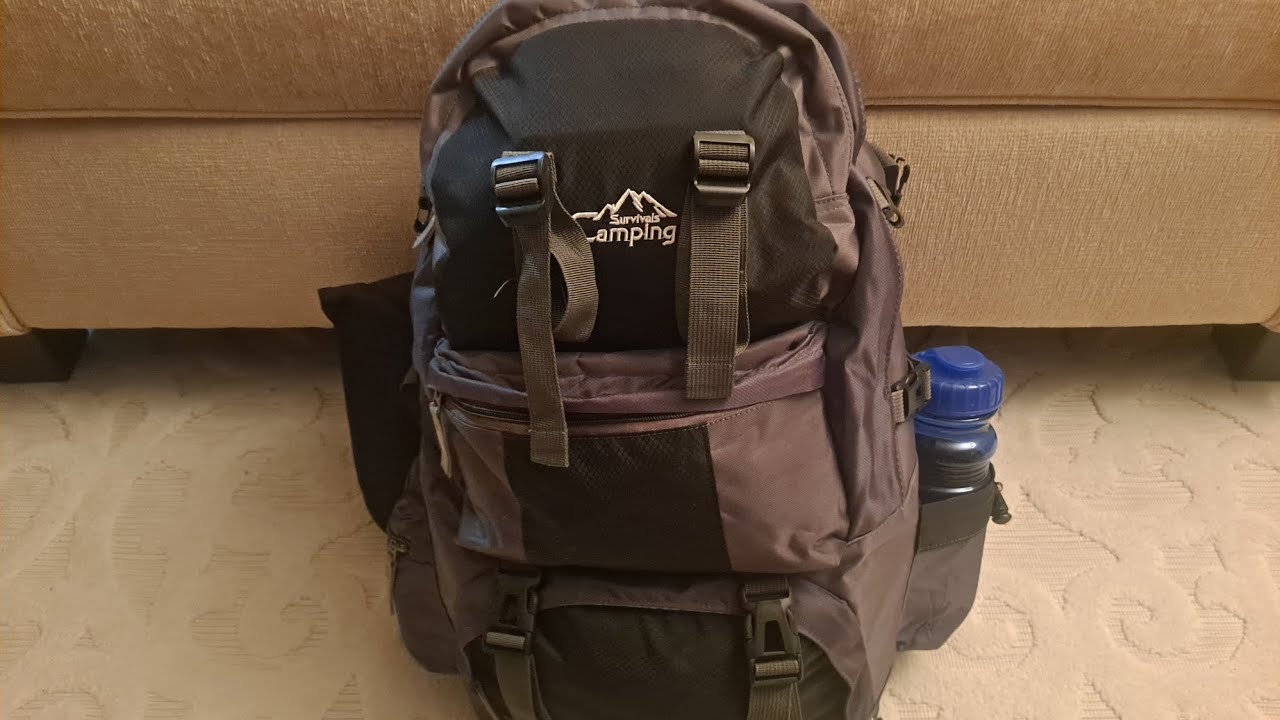Womens Preparedness
The Importance of Economic Preparedness in an Unpredictable World

Hello, ladies! It’s Jade Tripp here, your go-to expert in women’s self-defense and personal protection, with a focus on preparedness and prepping. Today, we’re diving deep into a topic that resonates with many of us: the importance of economic preparedness in an unpredictable world.
In recent years, we’ve all seen how quickly situations can change. From the pandemic causing widespread job loss to natural disasters disrupting our daily lives, economic stability can often feel like a fragile thread. Here, I’ll share insights and practical steps designed to empower you in this vital area.
Understanding Economic Preparedness
Economic preparedness means being ready for financial disruptions and having a solid plan to protect yourself and your family. It’s about more than just having a savings account; it’s about fostering a mindset of resilience.
Why Should We Care?
-
Global Events: The COVID-19 pandemic taught us that our economies can be fragile. Many women found themselves out of work or facing reduced hours, sending shockwaves through their financial plans.
-
Natural Disasters: Events like hurricanes, wildfires, or floods can disrupt not just lives but entire economies. Those who were prepared, with savings and emergency funds, fared better.
- Job Market Shifts: As industries evolve, some jobs become obsolete. Having a financial cushion can provide the breathing room needed to pivot your career or invest in new skills.
Creating Your Economic Safety Net
1. Building an Emergency Fund
One of the most critical steps in preparedness is creating an emergency fund.
Example: Let’s take Jamie, a single mom from New Orleans. After Hurricane Katrina, Jamie realized how vital savings are. She set a goal to save at least three to six months’ worth of living expenses. This fund gave her peace of mind and allowed her to remain stable during uncertain times.
2. Investing in Skills
In a world where job security can be uncertain, investing in yourself is one of the best moves you can make.
Real-Life Example: Look at the inspiring story of Jessica, who after losing her corporate job, enrolled in an online coding bootcamp. Not only did she learn a new skill, but she also became a freelancer, which allowed her to embrace flexibility and independence.
3. Diversifying Income Sources
Don’t put all your financial eggs in one basket. Exploring multiple streams of income can provide a buffer during tough times.
Example: Consider Sarah, who uses her love for baking to start a small side business. Alongside her day job, she bakes cakes and treats for local events. This not only boosts her income but also brings joy and fulfillment to her life.
4. Embracing Minimalism
Adopting a minimalist lifestyle can help you save money while decluttering your mind and space.
Real-Life Example: Take the example of Mia, a graphic designer in San Francisco. By selling items she no longer needed, she not only cleared out her apartment but also raised funds to bolster her savings. Emphasizing experiences over possessions can enhance your mental and financial well-being.
Networking and Community Support
Women thrive in community! Connect with supportive networks, both online and in your local area. Share tips, resources, and experiences.
Example: Organizations like “Women’s Entrepreneurial Network” offer workshops and peer support for women looking to navigate economic challenges together. Collaborative skills and experiences can lead to innovative solutions.
Conclusion: Empowerment Through Preparedness
Ladies, it’s time to take control of our economic futures! By incorporating these strategies into your life, you’ll be better equipped to handle the unexpected twists life may throw your way. Remember, preparedness is not just about surviving; it’s about thriving in an unpredictable world.
As we step forward, let’s uplift each other by sharing knowledge, encouraging one another, and fostering resilience. The world is unpredictable, but together, we can build a stronger, more prepared future.
Stay empowered and ready!
With love and strength,
Jade Tripp
Womens Preparedness
BUG OUT BAG FOR WOMEN | EVACUATION | PREPAREDNESS | LONG TERM GOT TO GO BAG

Thank you for watching my video. Please Subscribe Like Share to my channel https://youtu.be/zuABiko5y40 …
source
Womens Preparedness
How Multitasking Can Help or Hinder Emergency Response

Hello, fabulous women! It’s Jade Tripp here, and today we’re diving into a topic that can undoubtedly make a difference in how we respond to emergencies—multitasking. As women, we often pride ourselves on our ability to juggle various responsibilities simultaneously. Whether it’s managing work deadlines while planning our kids’ schedules or organizing a community event, multitasking has become second nature for us. However, when it comes to emergency situations, this skill can either empower us or lead us astray.
The Double-Edged Sword of Multitasking
When you think of multitasking, you might think of being efficient and productive. Yet, in high-stress situations, our brains can become overloaded, making it challenging to focus on the most critical tasks. Let’s break this down into both the advantages and drawbacks of multitasking when it truly matters.
The Benefits of Multitasking
-
Quick Decision Making: In emergencies, time is of the essence. Girls, how many of us have been in a situation where we had to make rapid decisions? For example, consider the case of a woman named Sarah, who was at a grocery store when a sudden fire broke out. While most people stood frozen, she quickly assessed her surroundings, located her children, and ushered them towards the exit all while alerting others nearby. Her ability to multitask saw her through a critical moment.
-
Resourceful Thinking: Multitasking enables us to draw from various skills simultaneously. Just think about preparing your family for a camping trip—setting up tents, cooking, and keeping the kids entertained can require juggling many things. In emergencies, such as a natural disaster where you might need to help a neighbor while tending to your family, this resourcefulness can save lives.
- Enhanced Situational Awareness: Managing multiple tasks can heighten awareness. For instance, during an earthquake like the one that hit Napa Valley in 2014, women like me used multitasking to secure themselves, help others, and even account for pets. Training ourselves to multitask within safe environments can prepare us for real emergencies.
The Downsides of Multitasking
Despite its benefits, multitasking can also hinder our response in critical moments. Here are a few reasons why:
-
Cognitive Overload: When we attempt to do too much at once, our brains can become overwhelmed. This can lead to mistakes. For example, let’s take the story of Lily, who was making dinner while chatting on the phone when she heard a loud crash in her living room. In the chaotic rush to assess the situation, she accidentally knocked over a pot of hot water, causing a burn. Focusing on one task at a time—like ensuring her children were safe first—might have prevented the injury.
-
Compromised Focus: Our cognitive resources are finite, especially under stress. During emergencies, people sometimes lose focus and miss critical cues. Remember the freezing of the bystanders during an incident at a public park? Their attention was split, and the moments of hesitation that followed could have led to different outcomes had they acted decisively.
- Neglected Priorities: It can be easy to get caught up in less crucial tasks while ignoring what truly matters. In emergencies, we need to prioritize our safety above all. The tragic case of a mother in a bullying incident comes to mind—she was so busy filming the altercation on her phone she neglected to intervene, resulting in harmful consequences.
Finding the Right Balance
So how can we strike a balance in our multitasking abilities while remaining effective in emergency situations? Here are some practical tips that can make a world of difference:
-
Prioritize Tasks: Always remember: safety first. In case of emergencies, assess the situation quickly. Identify the immediate threats and act accordingly. Teach yourself to prioritize by practicing scenarios that might arise.
-
Practice, Practice, Practice: The more training we have, the more instinctive our responses will become. Participate in personal safety classes or emergency drills. Organizations like the American Red Cross offer courses in first aid, CPR, and emergency preparedness that can help you react faster and more efficiently.
-
Limit Distractions: When you hear an alarm or a loud noise, resist the urge to multitask. Focus on what’s essential—your well-being and that of others. Think of Jessica, a teacher who, during a lockdown drill, removed distractions and kept her students focused on safety—her calmness in prioritizing over multitasking led to reduced anxiety.
- Mindfulness Techniques: Engage in mindfulness practices to improve focus. Breathing exercises and grounding techniques can preserve your mental strength during tense moments.
Final Thoughts
Ladies, multitasking is an incredible skill we have honed, and while it can lead to efficiently managing everyday life, we must adapt our approach in emergencies. By understanding its strengths and limitations, we can cultivate a more effective and empathetic response to critical situations.
Let’s equip ourselves with the mindset and the knowledge to act in times of crisis. Remember, preparation is key, and embracing our roles as powerful, multitasking women doesn’t just mean juggling everyday tasks—it means being ready to protect ourselves and our communities, no matter the situation!
Stay strong and stay safe! 💪🌟
Womens Preparedness
Empowering Women with Essential Outdoor Survival Shelters

Empowering Women with Essential Outdoor Survival Shelters
Hello, fierce warriors! I’m Jade Tripp, and today, we’re diving into a subject close to my heart: outdoor survival shelters. As women, it’s crucial that we equip ourselves not just with knowledge, but also with the skills that empower us in various situations, especially when it comes to self-defense and preparedness in the great outdoors.
Whether you’re a weekend camper, an adventurous hiker, or simply someone who loves the beauty of nature, understanding how to create a survival shelter can be a game-changer. Let’s explore the essentials together!
Why Outdoor Survival Shelters Matter
Outdoor survival shelters can be a lifeline in emergencies, but they also instill a sense of confidence and independence in each of us. Picture this: You’re on a solo hike in the Appalachian Trail, and suddenly, the weather takes a turn, or you miscalculate your return time. Having the know-how to construct a reliable shelter could mean the difference between discomfort and safety.
Essential Types of Shelters
Let’s break down some fundamental shelter types that every woman should be familiar with:
-
Lean-To Shelter
- What is it? A simple structure that can be set up against a fallen tree or rock face, leaning against the support for a sturdy base.
- How to Build It: Start by finding two strong supports. Lay smaller branches against them at an angle, creating a roof. Use leaves, pine boughs, or any available debris for insulation and to protect you from rain.
- Real-Life Example: Sarah McLachlan, a singer-songwriter and humanitarian, once spoke about a camping trip where she had to use a lean-to shelter during an unexpected storm. She was able to stay dry and safe, allowing her to continue her journey with confidence.
-
Debris Hut
- What is it? A natural shelter made from available materials, such as branches and leaves.
- How to Build It: Create a framework with a strong central pole and lean smaller branches against it to form a roof. Pack as much debris (leaves, grass, etc.) onto the roof to provide insulation.
- Inspiration: Consider the survival story of Kelly McGonigal, psychologist and author, who found herself lost in the wild and had to build a debris hut. With determination and a little knowledge, she survived overnight until help arrived.
- Tarp Shelter
- What is it? A versatile shelter made using a waterproof tarp.
- How to Build It: Use ropes to create a high point, then drape the tarp down to the ground. This creates a protection from rain on one side while keeping airflow on the other.
- Community Tip: Many outdoor enthusiast groups, like REI workshops, offer classes on using tarps effectively. These can be fantastic places to learn among women with shared interests!
Gear That Supports Your Shelter-Building Endeavors
Having the right gear can enhance your outdoor experiences and ensure you are prepared in case you need to construct a shelter:
- Multi-tool: This handy device can assist in gathering materials and making necessary adjustments to your shelter.
- Rope/Paracord: Strong and lightweight, it’s essential for securing materials together.
- Emergency Blanket: Lightweight and compact, it can retain body heat or serve as an additional layer for insulation in your shelter.
The Importance of Practice
Just like any skill, practice is key. Create a fun outdoor day with your friends or fellow women adventurers where you simulate building shelters. It’s not just about learning, but also bonding and empowering each other.
In fact, the Women’s Wilderness Institute offers excellent programs that cater to women eager to learn outdoor skills, including shelter building! By participating, you not only sharpen your techniques but also build a community of supportive, empowered women.
Confidence Through Knowledge
Understanding how to construct outdoor shelters is not just a survival skill; it’s about embracing confidence, independence, and empowerment. The wilderness can be unpredictable, but with the right knowledge, we can tackle it head-on.
Remember, every expert was once a beginner. When you gather with other women, share stories, and support each other, you’re creating an unbreakable sisterhood united in strength.
So, let’s empower each other by learning, growing, and preparing for whatever adventures life throws our way. Together, we can conquer the world—one shelter at a time!
Happy adventuring, ladies! 🌲💪
-

 Womens Self Defense11 months ago
Womens Self Defense11 months agoNew Legislation Empowers Women to Defend Themselves
-

 Self Defense News1 year ago
Self Defense News1 year agoShe was convicted of killing her abusive boyfriend. Now a Maple Grove woman is home awaiting a new trial.
-

 Self Defense News1 year ago
Self Defense News1 year agoSelf-Defense for All: The new Gracie Jiu-Jitsu Pasadena is for everyone | Online Features
-

 Womens Self Defense1 year ago
Womens Self Defense1 year agoTop 5 Self-Defense Techniques Every Woman Should Know
-

 Womens Self Defense7 months ago
Womens Self Defense7 months agoUnderstanding State-by-State Variation in Self Defense Laws
-

 Womens Fitness1 year ago
Womens Fitness1 year agoXtreme Bodyweight HIIT (Lots of Jumping!) | Joanna Soh (Fio Series)
-

 Womens Preparedness1 year ago
Womens Preparedness1 year ago10 essential skills for surviving in the great outdoors
-

 Womens Preparedness1 year ago
Womens Preparedness1 year agoEmpower Yourself: A Guide to Female Survival Planning



